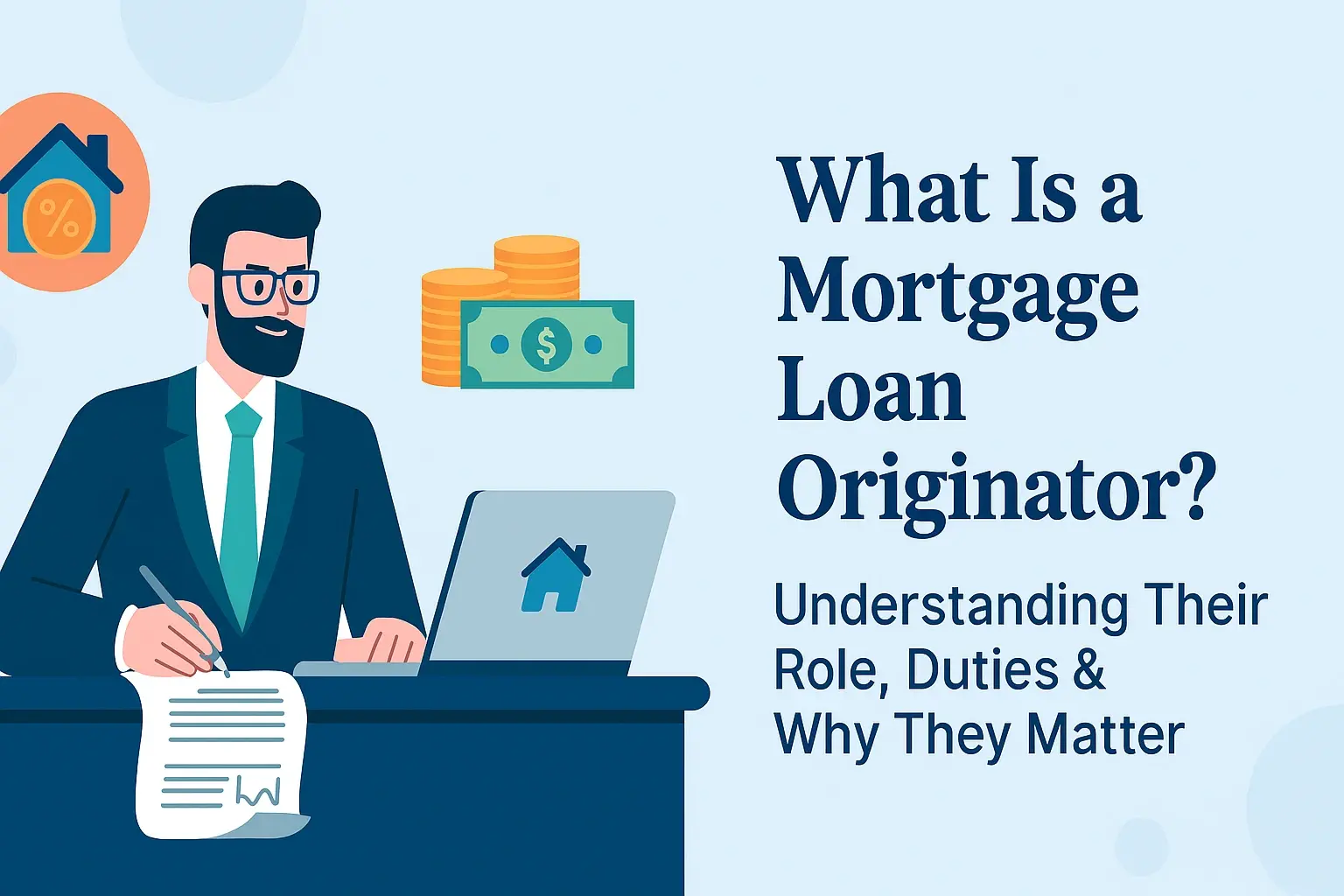-
Posted on: 23 Aug 2024

-
Buying a home is a significant milestone, and for many, navigating the complex world of mortgages can seem daunting. Fortunately, there are resources available to help make homeownership more accessible. One such resource is the FHA loan. But what exactly is an FHA loan, and how can it benefit you? This comprehensive guide will break down everything you need to know, from eligibility requirements to the advantages of choosing an FHA mortgage.
Understanding FHA Loans: The Basics
An FHA loan is a mortgage insured by the Federal Housing Administration (FHA), a government agency within the U.S. Department of Housing and Urban Development (HUD). These loans are designed to help individuals and families, particularly first-time homebuyers and those with lower credit scores or limited savings, become homeowners. Because the FHA insures these loans, lenders are more willing to offer mortgages to borrowers who might not qualify for conventional loans.
Who is the FHA Loan Designed For?
FHA loans are particularly beneficial for:
- First-time homebuyers: The lower down payment and less stringent credit requirements make FHA loans a great option for those just starting their homeownership journey.
- Borrowers with lower credit scores: While credit score requirements vary by lender, FHA loans generally accept lower credit scores compared to conventional loans.
- Borrowers with limited savings: The lower down payment requirement allows borrowers to purchase a home with less money saved.
Key Benefits of FHA Loans
FHA loans offer several advantages that make them an attractive option for many homebuyers:
- Lower Down Payment: One of the most significant benefits of an FHA loan is the low down payment requirement. Typically, you can put down as little as 3.5% of the purchase price.
- More Lenient Credit Requirements: FHA loans are often more forgiving when it comes to credit scores. While requirements vary by lender, you can potentially qualify with a score in the lower 600s, or even high 500s in some cases.
- Competitive Interest Rates: FHA loan interest rates are generally competitive with conventional mortgage rates, making them an affordable option.
- Assistance with Closing Costs: FHA loans allow sellers, builders, and other parties to contribute towards your closing costs, reducing the amount you need to pay upfront.
FHA Loan Requirements: What You Need to Know
While FHA loans are more accessible than conventional loans, they still come with certain requirements:
Credit Score
As mentioned earlier, FHA loans are generally more forgiving when it comes to credit scores. A credit score of 580 or higher typically allows you to qualify for the 3.5% down payment. If your credit score is between 500 and 579, you may still be eligible, but you'll likely need to make a 10% down payment.
Debt-to-Income Ratio (DTI)
Your DTI compares your monthly debt payments to your gross monthly income. FHA lenders typically prefer a DTI of 43% or lower, but some may allow higher DTIs depending on other factors, such as your credit score and cash reserves.
Employment History
FHA lenders want to see a stable employment history. You'll typically need to provide documentation showing consistent employment for the past two years. Self-employed individuals will need to provide additional documentation, such as tax returns and profit and loss statements.
Income Verification
You'll need to provide documentation to verify your income, such as pay stubs, W-2s, and tax returns. Lenders use this information to determine your ability to repay the loan.
Property Requirements
The property you're purchasing must meet certain standards to be eligible for an FHA loan. These standards ensure the property is safe, sound, and structurally secure. The property will be subject to an appraisal to determine its market value and ensure it meets FHA guidelines. This includes verifying that the home is habitable and free of major safety hazards.
Mortgage Insurance Premium (MIP)
All FHA loans require mortgage insurance, which protects the lender if you default on the loan. There are two types of mortgage insurance premiums:
- Upfront Mortgage Insurance Premium (UFMIP): This is a one-time fee paid at closing, typically 1.75% of the loan amount.
- Annual Mortgage Insurance Premium (Annual MIP): This is an ongoing fee paid monthly, typically ranging from 0.45% to 1.05% of the loan amount, depending on the loan term, loan amount, and loan-to-value ratio.
The annual MIP is typically required for the life of the loan if you put down less than 10%. If you put down 10% or more, the MIP will be required for 11 years.
FHA Loan Limits
FHA loan limits vary by county and are based on the median home prices in those areas. HUD sets these limits annually. It's essential to check the FHA loan limits for your specific county to ensure the property you're interested in falls within the eligible range. You can find the current FHA loan limits on the HUD website.
Why are there FHA Loan Limits?
The purpose of loan limits is to ensure that FHA loans are primarily used to help low-to-moderate-income homebuyers purchase affordable homes. The limits are designed to prevent FHA loans from being used to finance luxury properties or properties in high-cost areas that are beyond the reach of most eligible borrowers.
How to Apply for an FHA Loan
Applying for an FHA loan involves several steps:
- Get Pre-Approved: Before you start shopping for a home, get pre-approved for an FHA loan. This will give you a clear idea of how much you can afford and strengthen your offer when you find the right property.
- Find an FHA-Approved Lender: Work with a lender that is approved by the FHA. You can find a list of approved lenders on the HUD website.
- Gather Your Documents: Collect all the necessary documents, including pay stubs, W-2s, tax returns, bank statements, and identification.
- Complete the Application: Fill out the loan application and provide all the required information.
- Undergo Appraisal and Inspection: The lender will order an appraisal to determine the value of the property and ensure it meets FHA guidelines. An inspection may also be required to identify any potential issues with the property.
- Close the Loan: Once the loan is approved, you'll attend a closing meeting to sign the final documents and receive the keys to your new home.
Types of FHA Loans
While the standard FHA loan is the most common, there are several other types of FHA loans available:
- FHA 203(k) Loan: This loan allows you to finance both the purchase of a home and the cost of renovations or repairs.
- FHA Energy Efficient Mortgage (EEM): This loan helps you finance energy-efficient improvements to your home.
- FHA Home Equity Conversion Mortgage (HECM): This is a reverse mortgage for homeowners aged 62 and older, allowing them to access the equity in their homes.
Common Mistakes to Avoid When Applying for an FHA Loan
Applying for an FHA loan can be a smooth process if you avoid these common mistakes:
- Not Checking Your Credit Report: Before applying, review your credit report for any errors or discrepancies and address them.
- Taking on New Debt: Avoid taking on new debt before applying for a loan, as it can negatively impact your DTI.
- Changing Jobs: A stable employment history is crucial. Avoid changing jobs right before applying for a loan.
- Ignoring the Appraisal: Pay attention to the appraisal report and address any issues raised by the appraiser.
- Overlooking Closing Costs: Factor in all closing costs, including the UFMIP, appraisal fees, and other expenses.
FHA vs. Conventional Loans: Which is Right for You?
Choosing between an FHA loan and a conventional loan depends on your individual circumstances. Here's a comparison to help you decide:
Feature FHA Loan Conventional Loan Down Payment As low as 3.5% Typically 5% or more Credit Score More lenient; often accepts lower scores Higher credit score required Mortgage Insurance Required for the life of the loan (in most cases) Required only if down payment is less than 20% Loan Limits Subject to FHA loan limits Higher loan limits Property Requirements Must meet FHA guidelines Less stringent property requirements If you have a lower credit score, limited savings, or are a first-time homebuyer, an FHA loan may be the better option. If you have a strong credit score and can afford a larger down payment, a conventional loan might be more suitable.
Conclusion: Is an FHA Loan Right for You?
FHA loans can be a valuable tool for those looking to achieve homeownership, particularly those with lower credit scores or limited savings. By understanding the eligibility requirements, benefits, and potential drawbacks, you can make an informed decision about whether an FHA loan is the right choice for you. Remember to research different lenders, compare interest rates, and consider your long-term financial goals before making a final decision.









